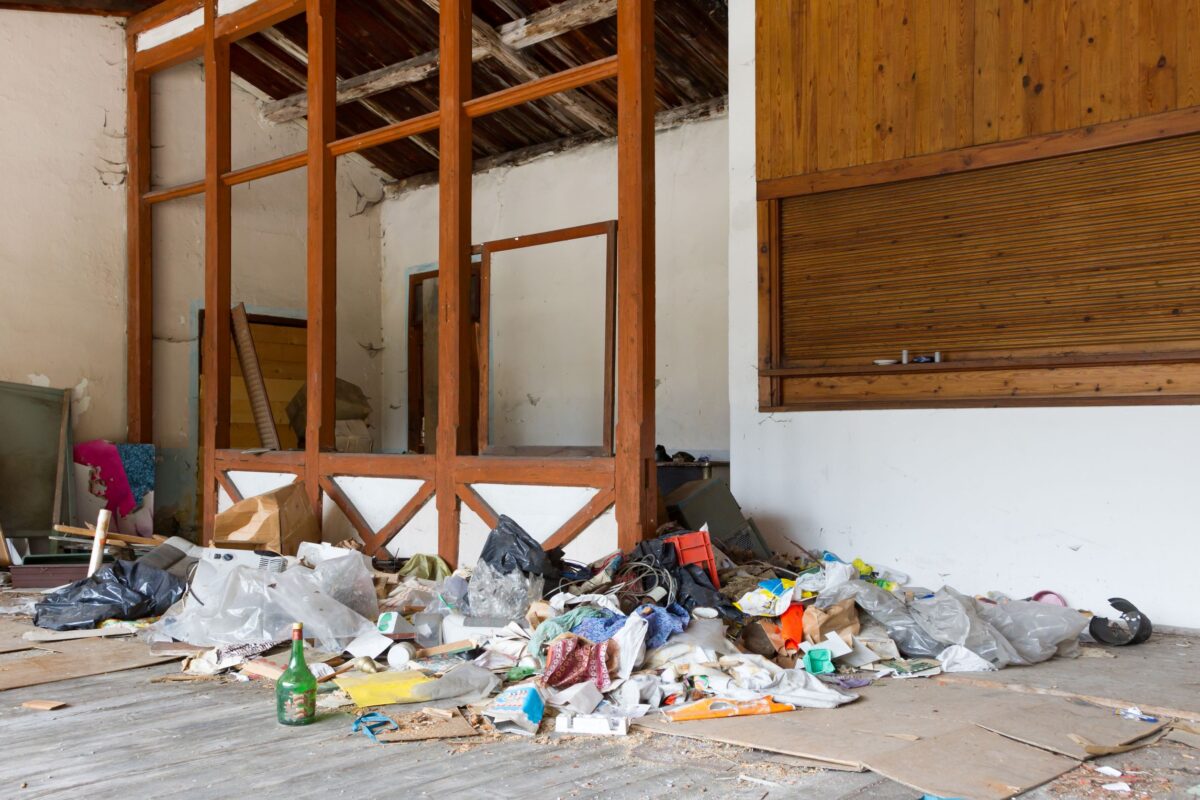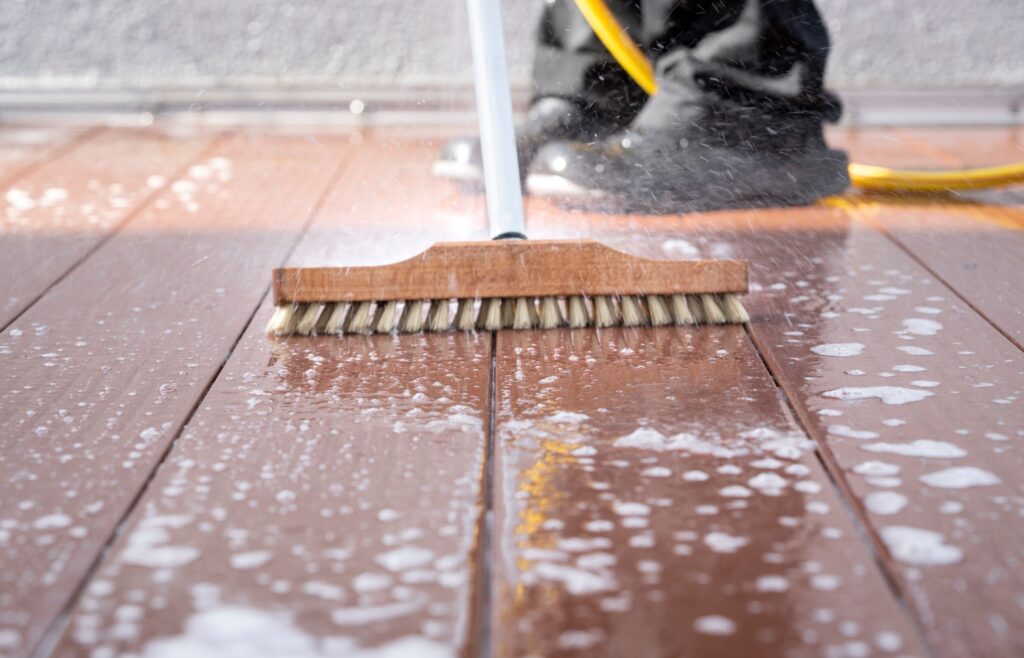What is ‘Gross Filth’ Cleanup?

Gross filth cleanup is different from a hoarder cleanup situation for seceral different reasons. Gross filth results from left behind trash, feces, food waste, dirty dishes, etc. This kind of extreme filth can occur for many different reasons.
Consider a person being too sick or elderly to take care of themselves. Trash will accumulate—especially if said person cannot use the restroom alone anymore. Sometimes people die in their homes without anyone finding them for a while. Some of those people may have many animals in the home that are uncared for— leaving behind mass amounts of feces, urine, and debris behind.
It’s also common for this level of filth to occur in meth houses or transient spaces. And of course, places in extreme hoarding situations.
Cleaning up a gross filth scene is challenging and can feel incredibly distressing.
The amount of trash and filth that is considered to be a gross filth cleanup is an unbearable job for anyone. In most cases, the person tasked with cleaning up the filth is not the person who made the mess in the first place.
It’s common for landlords to encounter gross filth when a tenant moves out of their apartment, for instance. The landlord has no idea that the tenants are living in filth, and when they move out, the landlord is shocked with what’s left behind. This is also a similar situation for investors or homeowners who have bought an abandoned property or a fixer-upper.
Family members of deceased loved ones are often faced with cleaning up a gross filth situation, too. Sometimes when people are sick, especially elderly people, they can no longer take care of themselves. In many cases, the sick individual does not alert their family or friends of the growing situation in their homes. And when they pass, their family members come into the home to organize their belongings, only to find a serious mess that they feel overwhelmed with cleaning.
Examples of ‘gross filth’ are:
- Excessive common household trash and debris building up over long periods of time without removal.
- Pets urinating and defecating freely inside the home without cleanup.
- Food laden plates or containers piled up in the sink, bathtub, and counters unwashed.
- Unflushed, overflowing, or broken toilets and sinks.
- Human waste in other areas of home or bathroom besides proper vesicles.
- Mattress, couches, or other items soaked in urine, blood, or loose stool for a variety of reasons.
- Light switches, walls, entryways, and door jams smeared with food waste, dirt, feces.
Many regular clean up companies, like housekeepers for instance, will not clean up a gross filth situation.
Why?
Because when filth goes to the extreme (feces, old food, animals, etc.), it becomes a biohazard. Housekeeping companies are not licensed to clean up biohazardous waste and do not have the tools to do so safely.
That’s where The BioClean Team comes in.
 How is Gross Filth Cleanup Different From Hoarder Cleanup?
How is Gross Filth Cleanup Different From Hoarder Cleanup?
Hoarder cleanup is a different situation from gross filth cleanup. Hoarding is a mental illness that provokes people to constantly consume. You can read more about hoarding here.
Cleaning up a hoarders home requires compassion, patience, and understanding of the disorder. The BioTeam takes great care in helping a hoarder throw away their things and determine what items to keep. We will carefully comb through every item, throw away trash, and clean any areas of filth.
The goal of hoarding cleanup is to give the hoarder a fresh start and a clean space to live in again. Many times when we clean a hoarder’s home, the hoarder is still there. Hoarding is a serious mental health disorder that makes a person believe that “more” will make them feel safe.
People can hoard animals, things, or trash. It really depends on the individual.
Most items will be thrown out in a gross filth cleanup.
Carpet will be replaced, tile busted out, fresh drywall hung up again. Gross filth is often a situation where people can’t live in space until it is completely cleaned out and remediated of any biohazard threat.
Feces and urine from animals and humans alone is enough to qualify for a growth filth clean up. Cleaning spaces where meth or other drugs have been made is also considered a gross clean up situation. Make sure not to expose yourself to bodily fluids or mold, either.
If you have a gross filth cleanup situation on your hands, please give us a call. Allow professionals with the education and appropriate gear handle the situation for you. Risking your health just isn’t worth it!
